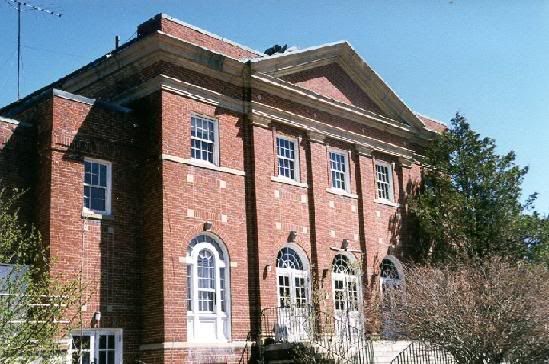Post by bluefedish on Jun 24, 2007 15:15:47 GMT -5
The Belchertown State School for the Feeble-Minded was established in 1922. The 876-acre campus comprised of ten major buildings built in a Colonial Revival style by Kendall, Taylor, and Co. The state schools of Massachusetts were different from state hospitals; the latter was for the mentally ill, while state schools were institutions for the mentally defective (the name is a misnomer, as they did not generally involve any form of education). Throughout its first 40 years, Belchertown operated mostly without scrutiny from outside sources. It was later discovered that since its inception the residents—some of whom had lived on the wards their entire lives—were being terribly mistreated and abused by the staff; author Benjamin Ricci referred to the conditions there as "horrific," "medieval", and "barbaric". Doctors at the school had little regard for patients' mental capacity.
Attendants on the wards were overworked, with dozens of patients in each ward, and as a result their treatment of the residents was nothing short of atrocious. Because there was not enough time for proper toilet care, residents were left "half-naked rolling in their own excrement". Those who were severely physically handicapped were left in their beds the entire day, without any form of entertainment. Patients who were unable to feed themselves were force-fed by the attendants, and when it was necessary to move a patient they did so roughly, causing injuries to the patient. As a result of this gross mistreatment, some patients were prone to "moaning in the hallways", "reaching into their diapers and spreading whatever they found all over, repeatedly banging their heads against the walls", or any of a number of other responses. Additionally, the facility suffered from vermin infestation.
The reason for this situation was partly due to the prevailing cultural perspective of what was often called "mental deficiency." Around the turn of the 20th century, many people with handicaps were simply kept at home when possible. This changed in the 1920s and 1930s because state governments and bureaucracies developed special divisions to manage these individuals—in Massachusetts and elsewhere, this was the role of the Department of Mental Retardation. In addition, expertise on "the infirm" became a specialty in the medical world, which in turn helped shape social policy. And while few parents would want to send their child to live in squalor and suffer abuse, many felt they had no other choice as there was simply nowhere else for a child with severe disabilities to go.
Belchertown was finally closed in 1992; two years later it was added to the National Register of Historic Places. More recent improvements have been the makeover of Foley Field into a baseball diamond for the local Little League team, and restoration of the overgrown cemetery (with numbers marking the graves) to appear cleaner and properly memorialize dead patients by name. In 2001, a town meeting designated the school property as an Economic Opportunity Area for 20 years.

Selected Sources:
en.wikipedia.org/wiki/Belchertown_State_School
www.belchertown.org
Attendants on the wards were overworked, with dozens of patients in each ward, and as a result their treatment of the residents was nothing short of atrocious. Because there was not enough time for proper toilet care, residents were left "half-naked rolling in their own excrement". Those who were severely physically handicapped were left in their beds the entire day, without any form of entertainment. Patients who were unable to feed themselves were force-fed by the attendants, and when it was necessary to move a patient they did so roughly, causing injuries to the patient. As a result of this gross mistreatment, some patients were prone to "moaning in the hallways", "reaching into their diapers and spreading whatever they found all over, repeatedly banging their heads against the walls", or any of a number of other responses. Additionally, the facility suffered from vermin infestation.
The reason for this situation was partly due to the prevailing cultural perspective of what was often called "mental deficiency." Around the turn of the 20th century, many people with handicaps were simply kept at home when possible. This changed in the 1920s and 1930s because state governments and bureaucracies developed special divisions to manage these individuals—in Massachusetts and elsewhere, this was the role of the Department of Mental Retardation. In addition, expertise on "the infirm" became a specialty in the medical world, which in turn helped shape social policy. And while few parents would want to send their child to live in squalor and suffer abuse, many felt they had no other choice as there was simply nowhere else for a child with severe disabilities to go.
Belchertown was finally closed in 1992; two years later it was added to the National Register of Historic Places. More recent improvements have been the makeover of Foley Field into a baseball diamond for the local Little League team, and restoration of the overgrown cemetery (with numbers marking the graves) to appear cleaner and properly memorialize dead patients by name. In 2001, a town meeting designated the school property as an Economic Opportunity Area for 20 years.

Selected Sources:
en.wikipedia.org/wiki/Belchertown_State_School
www.belchertown.org



